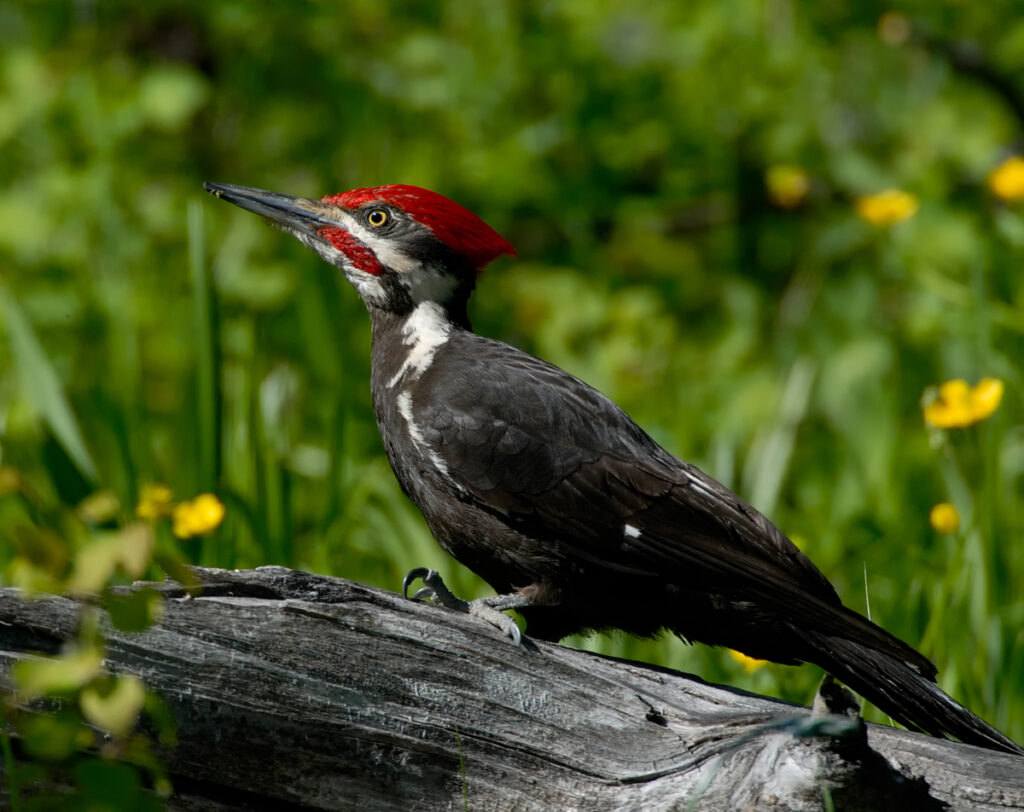The state of Minnesota is home to a diverse collection of woodpecker species. Many of these species will leave Minnesota for the winter months and will return in late winter. Their return is accompanied by their distinguishable tapping on trees and homes. Their return at this time places the woodpeckers in a unique position to feast on insect larvae as they emerge from the structures they settled into for their winter slumber. Like most birds, woodpeckers are protected species under the Migratory Bird Treaty Act of 1918. This act makes it necessary to receive a special permit prior to harvesting any Migratory bird.
Although these animals are extremely interesting to watch, they can create significant damage to the exterior of a home or business. If these destructive birds decide to habituate to your structure there is a chance that they could be the first of the wildlife intruders you may have. Often times we see these birds are the gatekeepers to wildlife entering homes. A woodpecker will create locations along the outside of the home that compromise the structure itself.
Other wildlife like squirrels, mice and raccoons can then use these areas to enter your home. If you are seeing woodpecker activity around your home, it is a good idea to do a 360degree walk around of the exterior of your home to ensure there are no holes in your siding/ soffits/ fascia.
Why Are Woodpeckers Hammering On My House?
There are 3 reasons that these birds will habituate to a structure.
- Drumming: This is the “hammering” noise that is satisfying to the birds. This loud noise proclaims their territory as well as attracts a suitable mate.
- Nesting: Animals are seeking to excavate a hole that is large enough for the animal to roost or nest. Nesting holes are typically built in the beginning of the breeding season.
- Foraging for Insect Larvae: Birds may be looking for insects living within the siding of your home. If the birds are looking for insects, they will create holes that are relatively small and irregular.
That’s right, these animals are not always hammering into a piece of wood to seek food. However, if they are creating many small holes throughout the siding of your home, this is a symptom of a larger issue. That issue would be the insects living within the exterior substrates of your home. Eliminating the existing insect population may have a systemic effect that also eliminates the woodpeckers from wanting to forage at your home.
In our areas we will commonly see these animals eating: Carpenter ants, ants, boxelder bugs, spiders, spider eggs, wasps, hornets, lady asian beetles.
Addressing The Woodpecker Issue
To address the underlying reason for their pecking, it’s important to remove the food source. Check areas of your home for any insect infestation. If you notice a number of dead insects near where the woodpeckers have been damaging your home, it’s important you get the issue treated right away to avoid further damage from woodpeckers.
Abra Kadabra Installs Woodpecker Deterrents
To learn more about woodpecker prevention tactics, contact the professionals at Abra Kadabra Environmental Services at (763) 537-0330. Our experts will be happy to answer any questions you have.







